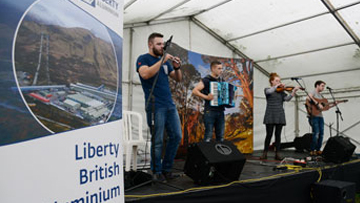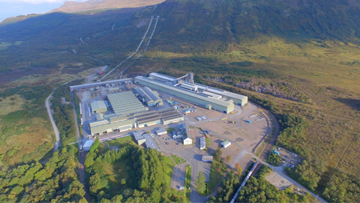Glen Nevis now open for all
Almost 150 local residents, outdoor enthusiasts, community volunteers turned out on Sunday morning to celebrate the opening up of part of Glen Nevis for the enjoyment of all for the first time.
Difficult terrain had previously made the riverside path a no-go area for wheelchair users, elderly and frail visitors and families with young children.
But thanks to a £600,000 upgrade of the path and the provision of a new river crossing, all of these groups can now explore the countryside around the renowned Highland beauty spot.
Before inviting traditional musician Robert Robertson to declare the new 1.5 km route open, Alex Farquhar, chairman of The Nevis Partnership, which led the two- year project in conjunction with The Highland Council, told the attendance that partnership was the key to the success of the scheme.
He said: “This new All-ability Path and Bridge is testament to what can be achieved when organisations work in partnership. Of all our 19 projects this one is a facility for all to enjoy. However, it is impossible to bring together a project such as this without the help, funding and goodwill of a great many people and organisations.”
He thanked the Highland Council, the Heritage Lottery Fund, Highlands and Islands Enterprise, Sport Scotland, Active Places, the European Agricultural Fund for Rural Development, the Scottish Youth Hostel Association and Alcan Highland Estates for their contribution to the initiative.
The day’s celebrations which included a march over the new bridge by the Lochaber Schools Pipe Band and hours of family activities and entertainment, were sponsored by GFG Estates, part of the GFG Alliance, which recently became the owner of a large part of Glen Nevis when the business bought the Lochaber aluminium smelter, hydro power stations and surrounding estate lands.
Jay Hambro, chief investment officer of the GFG Alliance, said: “We are very proud to have invested in the future of this part of the Highlands and are particularly pleased to work with groups like The Nevis Partnership to promote projects that add real value to the community. We are committed to working with regional agencies and local partners to maximise the economic and recreational use of the estate lands.”
Mr Farquhar told the gathering: “GFG Alliance have been totally supportive in this endeavour. We welcome them to the area and look forward to working with them on other projects in the future.”




